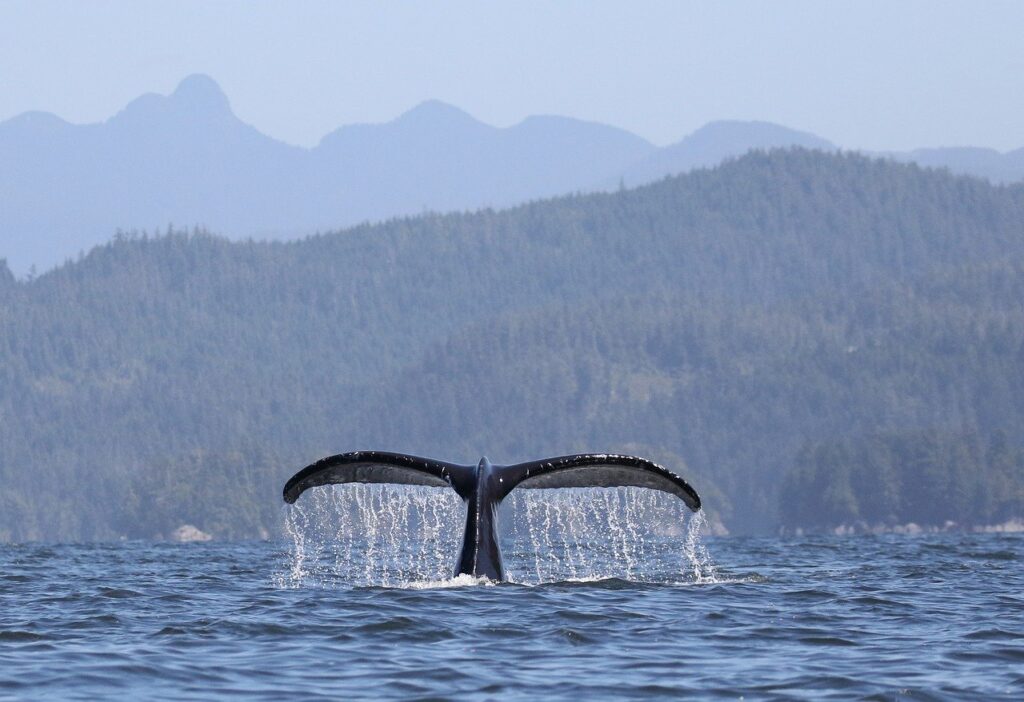Indigenous leaders from New Zealand, Tahiti, Tonga, and the Cook Islands have come together to sign a treaty granting legal personhood to whales. This significant step, spearheaded by Māori conservationist Mere Takoko, aims to exert pressure on governments to take more substantial actions in safeguarding these majestic sea mammals.
“What we aim to accomplish here is to afford whales certain rights,” explained Takoko during an interview with Morning Edition. “These rights encompass freedom of movement, natural behavior, development, cultural expression – including language – access to a healthy environment, thriving oceans, and the restoration of their populations.”
Leading the charge is the Hinemoana Halo Ocean Initiative, a New Zealand-based organization committed to marine conservation and indigenous rights advocacy. Takoko emphasized that the treaty lays the groundwork for legislation aimed at protecting whales, or as the Māori refer to them, tohorā – the revered ancestors of Polynesian indigenous communities.
According to Takoko, the survival of tohorā is paramount as they play a vital role in sustaining the entire marine ecosystem. Without them, she warns, the delicate balance of marine life would be in jeopardy.
Professor Heidi Pearson, a marine biologist at the University of Alaska Southeast, underscores the vulnerability of whales to the impacts of climate change, citing factors such as marine heatwaves, ship strikes, fisheries entanglement, and noise pollution as significant threats. “When I’m asked what the main threats are to whales, I usually say four things,” Pearson said. “Climate change, ship strikes, fisheries entanglement and noise pollution.”
Ralph Chami, CEO and Co-founder of Blue Green Future, and the lead economist behind the initiative, highlights the critical role whales play in capturing and storing carbon, emphasizing the potential economic value of their conservation efforts. By assigning legal personhood to whales, Chami proposes imposing fines on vessels that harm whales, thus incentivizing the use of anti-collision devices and reducing the risk of collisions. “For me, that’s what’s always driven me and my work with whale and other marine mammal conservation,” Pearson said. “Just recognizing their intrinsic value, their right to be on the earth as much as you and I.” Granting nature these kinds of rights is not a new idea. But Chami says it’s becoming a more common way to combat climate change. “In Costa Rica, they confer personhood on bees,” Chami said. “In Panama, they conferred personhood on leatherback turtles. In Ecuador, nature has rights.”
While some debate the monetary valuation of whale carbon and the potential pitfalls of commodifying nature, there is consensus that granting legal personhood to whales could significantly enhance conservation efforts.
Granting nature legal rights is not a novel concept, notes Chami, citing examples such as conferring personhood on bees in Costa Rica and leatherback turtles in Panama. Both New Zealand and Bangladesh have granted personhood to rivers, recognizing their intrinsic value and right to protection.
In essence, the concept of personhood is about acknowledging and valuing non-human lives, asserts Pearson, emphasizing the importance of recognizing the inherent worth of marine mammals and their right to coexist on Earth.
As Chami aptly summarizes, granting legal personhood to whales and other aspects of nature is about increasing visibility and ensuring that these vital ecosystems and species cannot be ignored in the face of environmental challenges. “So this whole thing is to make, in this case, the whale visible,” Chami says. Because things that are visible cannot be ignored. Click to help!


